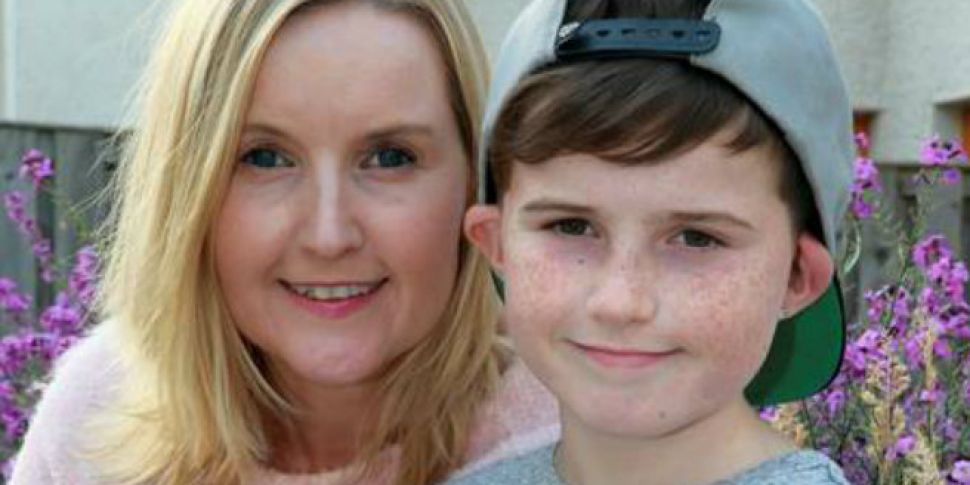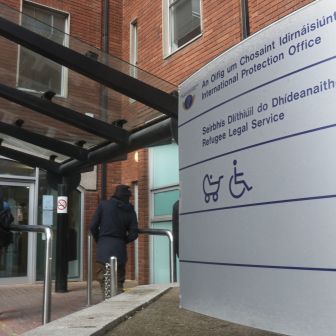According to the 2005 Disability Act, all assessments on children suspected of requiring any type of special care are to be carried out within three months by the HSE.
Unfortunately, that is not happening. This morning, we can reveal the extent to which that target is being missed when it comes to speech and language therapy.
We obtained the most up-to-date waiting list figures from the HSE in relations to speech and language therapy; there are about 20,000 people waiting.
Number awaiting assessment
|
0-4 months |
9,128 |
|
4-8 months |
2,266 |
|
8-12 months |
970 |
|
12-18 months |
107 |
|
18 months + |
179 |
|
TOTAL |
12,650 |
Number awaiting treatment
|
0-4 months |
3,331 |
|
4-8 months |
1,906 |
|
8-12 months |
1,060 |
|
12-18 months |
666 |
|
18 months + |
945 |
|
TOTAL |
7,908 |
And the problem isn’t just the waiting lists. We know there is also an element of geographical lottery to this.
LOFFA, who are the Laois-Offaly Families for Autism published a report late last week that revealed that they have half the number of therapists of Cork South Lee, despite similar populations. They also have a 25% bigger population than Longford-Westmeath and yet have 25% fewer therapists.
Anomalies like this exist all over the country. So nationally, the figures we obtained show that the targets are being missed and how far you miss them by might well depend on where you are unlucky enough to live.
Ruth Cullen is the mother of Stephen, who is now 11. Stephen suffers from SSLI. It was when he started school that they realised there was a problem. He couldn’t express himself. He would come home in hysterics. He wouldn’t engage with other young people. He couldn’t make friends. He couldn’t explain himself to teachers. He was trapped in this and it was all because he couldn’t communicate.
It was almost three years from the time the school first sought to have him assessed until he had the assessment. You can hear how badly this was affecting him.
The problems don’t stop there. Once a child like Stephen is assessed as needing SLT, they get a tiny amount. He gets one block per year. That means for six weeks at one stage in the year, he gets 45 minutes therapy per week. That’s it. 270 minutes per year. For a child who was so distraught with his problems he was talking about suicide.
That level of allocation is not unusual.
Another mother we spoke to was Nuala O’Callaghan. Herchildren are Darragh, Evan and Jamie. Darragh, 10, and Jamie, 5, both have SSLI as well. Both went through the same delays only to get a diagnosis and then be told they were entitled to something similar, one block of 45 minute sessions for just a few weeks.
And as you might expect, this hasn’t done much to help her children:
And here's the HSE response:
The HSE has commenced the reconfiguration of children’s disability services into geographically-based early-intervention and school-aged teams as part of the Progressing Disability Services for Children and Young People Programme. The objective of the Programme is to provide one clear referral pathway for all children (0-18s), irrespective of their disability, where they live or the school they attend. The transition to this service delivery model is governed by a consultation and engagement process with all stakeholders, including service users and their families, and is being implemented on a phased basis, with full implementation of the model scheduled for the end of 2015.
In 2014, the roll out of the Progressing Disability Services for Children and Young People (0-18s) Programme entailed targeted investment of €4m and the provision of 80 additional therapy staff (including 31 Speech and Language Therapists), to increase services for children with all disabilities.
A further €6m allocation was announced in 2015 for the reconfiguration of children’s disability services, which will enable us to drive implementation of the Progressing Disability Services for Children and Young People Programme through new staff appointments to reconfigured multi-disciplinary, geographic-based teams, and through using innovative approaches, involving public, voluntary and private providers, to achieve targeted reduction of waiting lists. These measures will have a positive impact on the provision of clinical services for all children requiring access to health related supports.









